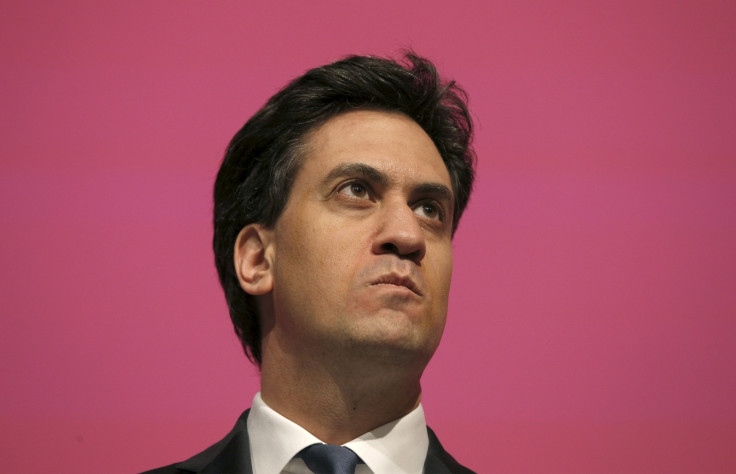Election 2015: Ed Miliband must handle non-doms with care - we can't afford to lose them

Researchers at the Said Business School in Oxford have shown that increases in political instability elsewhere in the world are associated with rising house prices in London. The effect can even be observed at the neighbourhood level, in other words when there is more uncertainty in, say, Russia it's the parts of London with a concentration of Russian residents that experience a higher-than-trend rise in prices.
It's a powerful measure of London's status as a global city, a status that draws in money for investment and consumption. However, there is a flipside to London's success - buying a house has become increasingly unaffordable for many young Londoners in particular.
The Labour Party's pledge this week during the UK General Election campaign to change the tax treatment of non-domiciled residents goes to the heart of this ambiguity about the value or otherwise of having a global elite in the UK. On the one hand, "non-doms" actually paid £8.2bn in income tax in 2012-13. While non-doms have the option of shielding their income from outside the UK, around 60% of the 110,700 people claiming the status of non-doms didn't do that.
But that still leaves over 40,000 people who opted to pay an annual charge starting at £30,000 rather than expose all of their global income to tax in the UK. We might reasonably assume that these are the richer ones, for whom the annual charge represents a saving compared to what they would otherwise pay in tax. Now Labour would like to eliminate this option, ending an advantage for non-doms that other UK residents do not have.
'The retro policies Labour is proposing are concerning, because they seek to turn back the economic steps forward Britain has made as a country.'
Read tech pioneer Joanna Shields' take on the election here.
Some experts suggest that the boost to tax revenues may be in excess of £1bn a year. It's a small figure in the context of the wider fiscal consolidation that the UK is trying to achieve but, especially during the election campaign, Labour's bigger claim is that this change will make for a fairer tax system.
This argument on fairness is a knotty one. Richer non-doms are unlikely to be using the state health or education system. However, they do rely on public infrastructure and they should help to fund a welfare state that serves those less fortunate than them in the country where they live.
However, given that the annual charge of £30,000 is in excess of UK median household income and will rise to £90,000 for non-doms that have been resident in the UK for 17 out of the last 20 years, they might believe that this already reflects a fair contribution to UK society.

The opposite argument is that most UK residents don't have the option of capping their annual tax bill. There should be a level playing field. But this is where the practical problems arise.
'The argument on fairness is a knotty one. Richer non-doms are unlikely to be using the state health or education system. However, they do rely on public infrastructure and they should help to fund a welfare state that serves those less fortunate than them in the country where they live.'
Arguably, the annual charge for non-doms in the UK represents a successful compromise between the tax authority and rich individuals. Tax revenues from non-doms have gone up from £5.7bn in 2008-09 to £8.2bn in 2012-13. By contrast, overall income tax revenues have done no better than to recover from the dip after the financial crisis.
George Osborne, the current Chancellor, has already taken steps to increase the charges faced by non-doms, including when buying expensive properties. At the same time, the relief for remitting overseas income to the UK when it is to be used for investment has been improved.
Gradual change
While historically the gap between the treatment of non-doms and other UK residents was too large, what has been going on in the light of these recent changes is a gradual adjustment that enhances the fairness of the tax system without trying to grab all the potential yield in a single move. The challenge posed by Labour's proposal is that non-doms may respond by engaging in more aggressive tax management and acclimatisation to the UK tax system, and even consider a flight to safety.
That's far too subtle a point for an election campaign but, to be fair, Labour has already suggested that any changes to non-dom status will be phased in. Ultimately, UK politicians usually know that future UK prosperity relies, for better or worse, on making the most of the competitive advantages that the country has, which include its openness to the world and London's status as a global city.
Whatever political challenges those might create – after all, standing up for the footloose rich is never going to be popular - losing them is not an option.
If we want proof of Labour's commitment to those same ideas, then it's advocacy for UK membership of the EU, even in the context of a Eurosceptic electorate, provides that. Changing how non-doms are taxed is risky but it's a change that Labour, if it wins power, will be likely to manage carefully.
Emran Mian is Director of the Social Market Foundation, an independent public policy think tank. You can follow him on Twitter @emranmian or the SMF @SMFthinktank. Alternatively, visit www.smf.co.uk for more.
© Copyright IBTimes 2025. All rights reserved.





















